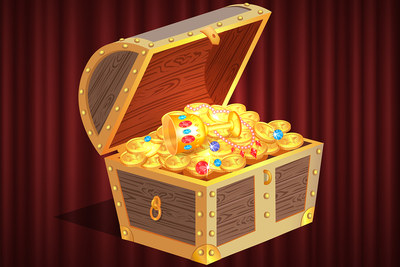 Earlier in the year the Gambling Commission said that it felt that purchases made ‘in-game’ by video game players wasn’t anything to do with gambling and therefore fell out of their jurisdiction. They said that the current rules only allow them to consider something as gambling if there’s real-life money to be won or else a prize that has monetary value. However MPs have spent time recently considering the issue and have disagreed with the UKGC’s take on the matter, saying that in-game spending is gambling and that loot boxes should be banned for children.
Earlier in the year the Gambling Commission said that it felt that purchases made ‘in-game’ by video game players wasn’t anything to do with gambling and therefore fell out of their jurisdiction. They said that the current rules only allow them to consider something as gambling if there’s real-life money to be won or else a prize that has monetary value. However MPs have spent time recently considering the issue and have disagreed with the UKGC’s take on the matter, saying that in-game spending is gambling and that loot boxes should be banned for children.
It has been a somewhat fraught investigation by the Digital, Culture, Media and Sport Committee, with MPs saying that some representatives from the games industry were ‘lacking honesty and transparency’. Damian Collins MP, speaking on behalf of the committee, said that there was a feeling of games company representatives being ‘wilfully obtuse’ around the issue, with a general lack of willingness to accept any responsibility. No one that spoke to the committee was willing to accept fault or even go so far as to say how much they felt would be ‘too much’ money spent by gamers investing in in-game purchases.
MPs Dislike The ‘Business Model’

Collins was quick to take to social media in the wake of the report’s publication in order to draw attention to the fact that the committee’s look at the world of ‘Immersive and Addictive Technologies’ was critical of the business model used by gaming companies. Collins likened it to the world of social media, somewhat ironically, saying that business model of both requires the companies to win a battle over people’s ‘attention, time and money’. He said, “Loot boxes are particularly lucrative for games companies but come at a high cost, particularly for problem gamblers, while exposing children to potential harm”.
We’ve published our @CommonsCMS report on Immersive and Addictive Technologies recommending the regulation of video games ‘loot boxes’, more effective age verification for online games and social media and the takedown of known false ‘deep-fake’ films https://t.co/S4K11ums5F
— Damian Collins (@DamianCollins) 12 September 2019
Jagex, the company that made the online game RunScape, was amongst the only ones to be forthright with MPs, admitting that players can spend as much as £1,000 a week and up to £5,000 per week playing the game. It was a stark admission when compared to the refusal of other gaming industry figures to take any responsibility whatsoever even when they knew that players were over-spending. In fact, MPs couldn’t get a straight answer from industry representatives about what they felt was ‘too much money’ to be being spent in-game. It was difficult, said some MPs, to get an answer about issues such as what data was being collected by gaming companies as well as how that data was used.
How The Gaming Industry Sees Things
 Predictably, the gaming industry doesn’t agree with the way MPs appear to see things. During her own appearance in front of the committee Kerry Hopkins, the Vice President of EA Games, said that her company believes that loot boxes are both ‘ethical’ and ‘fun’. Loot boxes, which can purchased in-game and contain goodies such as costumes, weapons and other things, have been linked to gambling by a group of computer scientists from York. Yet Kerry said that EA have implemented them in a way that is ‘quite enjoyable to people’.
Predictably, the gaming industry doesn’t agree with the way MPs appear to see things. During her own appearance in front of the committee Kerry Hopkins, the Vice President of EA Games, said that her company believes that loot boxes are both ‘ethical’ and ‘fun’. Loot boxes, which can purchased in-game and contain goodies such as costumes, weapons and other things, have been linked to gambling by a group of computer scientists from York. Yet Kerry said that EA have implemented them in a way that is ‘quite enjoyable to people’.
It’s a statement that Ryan Brown, a gaming journalist, completely disagrees with. Speaking to BBC Radio 1’s Newsbeat, Brown said that most gamers ‘don’t deem it as being fun’ and instead wish that they weren’t part of the game. Kerry compared the loot boxes to the likes of ‘Kinder Eggs, Hatchimals or LOL Surprise’, but Brown said that the major difference is that people buying loot boxes hope to find something of value in them rather than just a throwaway toy. Dr Jo Twist, the Chief Executive of UK Interactive Entertainment, rejected the idea of the gaming industry not taking the welfare of players seriously, though she did confess that some in the industry are ‘finding balance is a problem’.
What MPs Want To Happen
 The DCMS committee is recommending to the government that loot boxes and other in-game purchases should be considered as gambling and regulated as such. At the moment they’re regulated as though they’re awarded for in-game success, but that is not acceptable in the eyes of the committee. It is felt that if loot boxes can be purchased for money then they should contain a warning that they contain gambling elements and given an age-rating that is in accordance with that. The current legislation doesn’t consider the items ‘won’ in the purchase of a loot box to have any financial worth, therefore meaning that they are not covered by existing gambling legislation.
The DCMS committee is recommending to the government that loot boxes and other in-game purchases should be considered as gambling and regulated as such. At the moment they’re regulated as though they’re awarded for in-game success, but that is not acceptable in the eyes of the committee. It is felt that if loot boxes can be purchased for money then they should contain a warning that they contain gambling elements and given an age-rating that is in accordance with that. The current legislation doesn’t consider the items ‘won’ in the purchase of a loot box to have any financial worth, therefore meaning that they are not covered by existing gambling legislation.
Yet the committee heard evidence from gamers that things ‘won’ in a loot box can be exchanged for other items or even sold for cash. Free games often have associations to marketplaces where this sort of trading can be carried out, meaning that there is some form of link to physical cash associated with the purchase of loot boxes. With that in mind, MPs believe that they should come under the jurisdiction of the UKGC and be considered as a game of chance, as outlined in the Gambling Act of 2005.
It Is ‘Gambling’, Say MPs
Damian Collins, who chaired the committee, said, “Loot boxes are particularly lucrative for games companies but come at a high cost, particularly for problem gamblers, while exposing children to potential harm. Buying a loot box is playing a game of chance and it is high time the gambling laws caught up. We challenge the government to explain why loot boxes should be exempt from the Gambling Act”. A Gambling Commission survey carried out last year found that around a third of children had bought a loot box, with one player saying he’d spent as much as £1,000 trying to get better players on FIFA. It’s part of the reason why the MPs on the committee believe that loot boxes should be illegal for children.
Part of the problem with that, of course, is that the age of the player is currently based on an ‘honesty system’, with MPs believing that more should be done to verify the age of those playing the games. Cognitive psychologists told the committee that in-game features like loot boxes are ‘designed to exploit potent psychological mechanisms associated with […] gambling-like behaviours’. Given that they have already been classed as gambling in Belgium, have seen a Republican senator introduce a bill to ban them in America and have been restricted in China, it’s unlikely to be long before the in-game purchases are banned in this country. That is especially the case in the light of the committee’s report into the matter.



